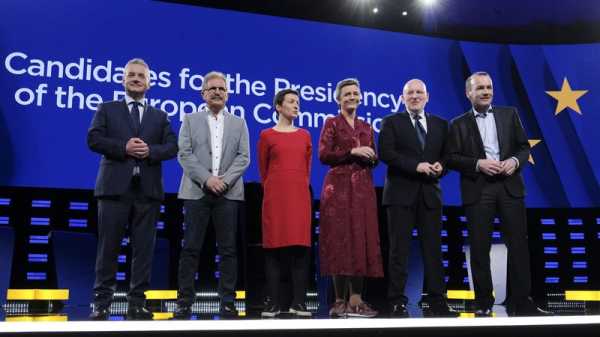
New funding rules for European political parties and foundations are set to allow parties to finance campaigns on national referendums that deal with European issues. While there might be good intentions behind this change, it could be problematic, writes Wouter Wolfs.
Wouter Wolfs is a Senior Researcher at the KU Leuven Public Governance Institute
Currently, a financial “firewall” exists between the European and national parties. Parties at the European level have received increasingly vast amounts of public funding: close to €700 million since 2004.
While these Europarties can conduct their electoral campaigns in the European elections, their European subsidies cannot be used to directly or indirectly support national parties or candidates.
This has led to rather strange situations. Both in 2014 and 2019, most European political parties selected a “Spitzenkandidat” for the European Commission’s presidency and acted as the main political figurehead in the electoral campaign.
Yet, because of the ban on (in)direct funding of national candidates, Europarties could not spend any money in the member state in which their Spitzenkandidat was standing for election. During the 2019 European elections, for example, the European People’s Party could not finance the campaign of their lead candidate Manfred Weber in Germany.
On one hand, such a financial firewall makes sense. Especially if direct funding would be allowed, Europarties run the risk of becoming nothing more than financial vehicles to distribute money over national parties and candidates, mirroring the federal party organisations in the United States. Similarly, granting European political parties the possibility to campaign in national or regional elections feels like a political mismatch.
On the other hand, such a strict financial separation hampers the efforts of Europarties to conduct an EU-wide campaign in the run-up to the European elections, as the example of Manfred Weber shows.
This is particularly the case because indirect financial support has been interpreted quite broadly in recent years: even election training for national politicians organised by European political parties was not permitted.
It is consequently not a coincidence that European elections are still often characterised as “second-order national elections”: they lack a proper European dimension.
The proposed legislative change to allow Europarties to finance campaigns in national referendums on EU issues should be seen in this light: it is an attempt to strengthen a European political space. In this respect, European political parties would take on a role comparable to civil society organisations and act as “third parties” campaigning in favour or against the content of the referendum question. This would indeed allow them to increase their visibility among EU citizens.
However, there are several practical and principled arguments against such a possibility.
First, whereas in most cases it will be clear whether or not a referendum is about an EU issue, there might be cases in which this is not entirely clear, or in which the referendum question is related to both EU and national issues, or in which multiple referendum questions are put before the population at the same time. Second, some EU member states do not allow “third parties” to campaign, which creates inequalities among European countries.
Finally and most importantly, referendums are often related to the core of the relationship between the member state concerned and the European level. In the last twenty years, most referendum questions on European issues were about EU membership or an opt-out of a specific EU policy field.
Such decisions befall the citizens of the member state in question without any (financial) influence from “third parties” (including European political parties). Questions on continued EU membership or a possible opt-out should be discussed, deliberated, and decided by the community that is directly (and most heavily) impacted by the outcome of this decision without the interference of third parties.
After all, referendums on EU issues in member states do not constitute the core of EU political (party) competition; the centre of gravity of the ideological competition of ideas between political parties is the elections to the European Parliament. Consequently, the main efforts should be focused on strengthening the European dimension of these elections.
Source: euractiv.com



